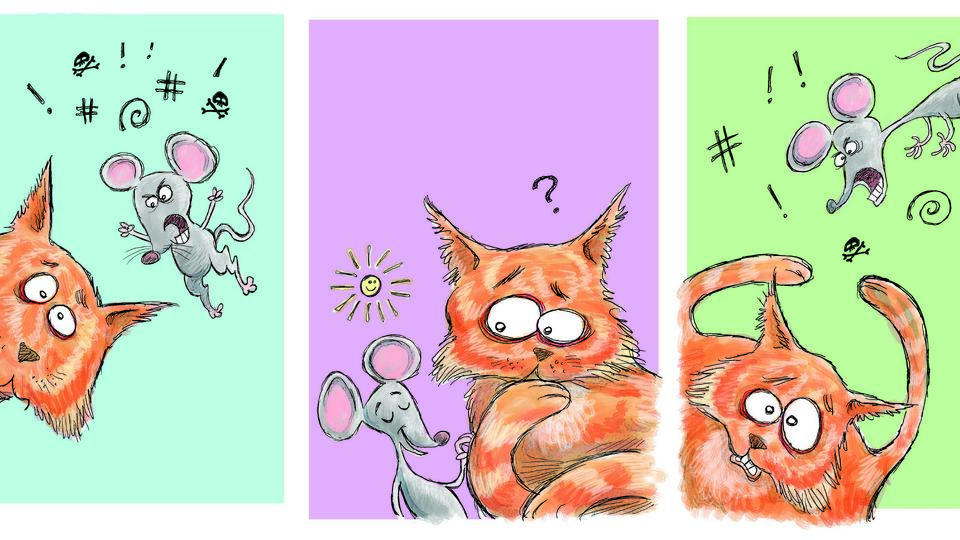
Mad Skills
When Is Anger Persuasive, And When Is It Just Off-Putting?
Based on research by Hajo Adam (former Rice Business professor) and Jeanne M. Brett
When Is Anger Persuasive, And When Is It Just Off-Putting?
- Past research shows that getting visibly mad during negotiations brings concessions.
- But new research shows that the level of anger affects the negotiation’s end result. Some anger is better than none. Too much is a problem.
- Displays of anger can have side effects, harming long-term relationships.
The negotiations have dragged on for weeks, as you finalize the merger between your company and an industry powerhouse. The deal makes perfect sense, pushing both companies to grow in a way they couldn’t do individually.
But whenever you think it’s finally time for a handshake, your counterpart backs off. The next talks are tomorrow and you’re seething. What to do? Keep an even keel and keep talking? Walk off? Or wig out?
Former Rice Business professor Hajo Adam and Northwestern University professor Jeanne M. Brett looked closely at this type of negotiation, which, they point out, is not dissimilar from other types of negotiation, whether in the boardroom or at home.
According to previous studies, expressing anger in a negotiation yields clear benefits. Now the researchers wanted to understand whether all displays of anger are equal.
It turns out, they’re not. Moderate-intensity anger made the negotiator look tough and spurred larger concessions than no anger. But high-intensity anger came off as inappropriate, and was less effective than a show of moderate-level anger.
The trick, in other words, is learning how to calibrate anger displays for the best outcome.
As anger intensity rose, Adam and Brett found, concessions rose, too. But at a certain point, as anger escalated, the concessions started to fade. Like a powerful medicine that also saps bone strength, powerful displays of ire during a negotiation had side effects, damaging long-term relationships.
To track the effects of heated negotiations, the researchers tapped 226 undergraduate students from across the United States (88 men, 138 women, average age 21) to take part in face-to-face talks involving a student project. Then the researchers studied a second group with 170 participants (79 men, 90 women, one unspecified, average age 37) as they took part in a computer-mediated/online negotiation about mobile phone sales.
The professors used various methods to take the negotiators’ emotional temperature. In the first study the participants were paired off, with one student instructed to use anger as a negotiating tool. After the encounter, the other student rated his or her partner’s anger on a scale of 1 to 5.
In the second study, the professors manipulated statements including “This negotiation is starting to make me the slightest bit upset” and “This negotiation makes me TOTALLY UPSET!” In this instance, the participants expressed negative feelings about their counterparts even at low levels of anger, but the feelings got markedly worse at higher levels.
These findings, the researchers note, signal a need for further understanding of the full range of emotions that can erupt during a deal making process. “It would be interesting,” they write, “to explore the influence of intensity with respect to emotions that are common in negotiations besides anger, such as happiness, disappointment or pride.”
Until then, Hajo and Brett advise, if you find yourself in talks and the person across the table is clearly playing games, go ahead and flash a bit of temper. Signal that you’re tough. But, the pair warns, it’s critical to use common sense. Go too far, get too rough, and you’ll not only fail to get the outcome you want, you may poison the relationship you need to do further business. Launching a merger, it turns out, can benefit from the same advice once given to young folks starting a marriage. There’s nothing wrong with showing some temper. But don’t go so far that your negotiating partner goes to sleep mad at you.
Hajo Adam was formerly an assistant professor of management at Jones Graduate School of Business at Rice University. He is now at University of Bath’s School of Management.
To learn more, please see: Adam, H. & Brett, J. M. (2018). Everything in moderation: The social effects of anger depend on its perceived intensity. Journal of Experimental Psychology, 76, 12-18.
Never Miss A Story


